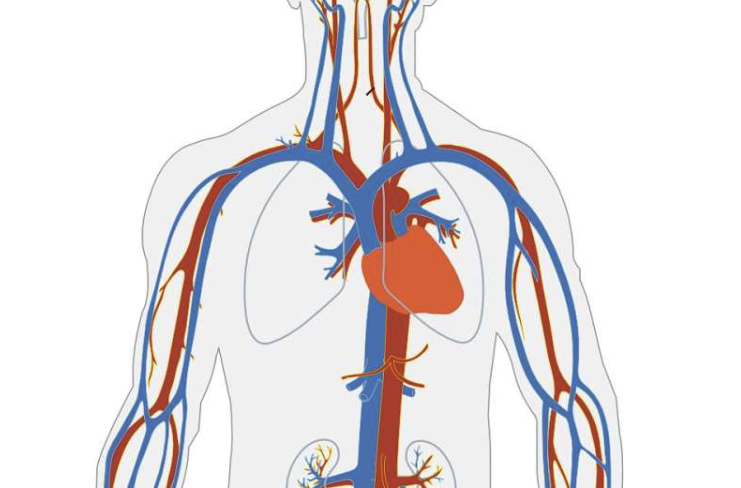Niacin, also known as vitamin B3, is a water-soluble essential nutrient with roles in vital metabolic processes within the body.
Beyond its fundamental functions in energy metabolism and DNA repair, Niacin has garnered significant attention for its potential cardiovascular benefits.
The possible advantages of using Niacin for heart health have been recognized for decades. Research dating back to 1955 revealed that high doses of Niacin could notably decrease cholesterol levels in humans.
Key Points:
Studies show Niacin has several potential benefits for heart health:
- Improves blood fat profiles
- Exhibits anti-inflammatory activity
- Enhances vascular health and blood pressure
- Associated with lower risk of cardiovascular events
Blood Fat Levels

Numerous studies suggest that Niacin may benefit heart health by addressing abnormal fat metabolism, a major underlying factor in cardiovascular disease:
- Blood Fat Profile: Large clinical trials have shown Niacin reduced LDL “bad” cholesterol (18-21%), total cholesterol (12-13%), and fat (26-40%). Substantial increases in HDL “good” cholesterol (26-28%) were also observed. (1, 2, 3)
- Levels of particularly harmful form of LDL: A meta-analysis of 14 studies demonstrated Niacin’s ability to lower Lp(a) levels, a specific type of LDL molecule that is highly associated with disease.
- Blood Fats in T2DM: Two large reviews of multiple trials showed Niacin improved blood fat profiles in patients with T2DM, including reductions in LDL, triglycerides (fat), and total cholesterol, along with increased HDL levels. (4, 5)
- Short-Term Treatment: Improved blood triglyceride (fat) levels in patients with low HDL were observed after one week of Niacin treatment. (6)
- Liver Fat: A study of 29 patients with high blood fats showed Niacin significantly reduced liver fat content by nearly 50% after 23 weeks. Modest reductions in triglycerides and belly fat were also observed.
Anti-inflammatory Effects
In a 12-week clinical trial, individuals with type 2 diabetes and low HDL cholesterol who took 1,500 mg/day of Niacin showed reduced attachment of immune cells (monocytes) to the inner lining of blood vessels (endothelial cells). This decrease is important as excessive attachment of these cells may lead to inflammation and elevate the risk of heart issues.
In patients with metabolic syndrome, Niacin treatment for 52 weeks improved vascular function and reduced the inflammatory molecule, CRP, by 20%. (7)
“Extended-release niacin may demonstrate an anti-atherogenic effect in the metabolic syndrome by improving endothelial function and decreasing vascular inflammation.” (7)
Similarly, adding Niacin to existing treatment for 3 months reduced CRP by 15% and another marker of inflammation, lipoprotein-associated phospholipase A2 by 20%. (8)
While many of Niacin’s heart-protective benefits stem from its interaction with the GPR109A receptor, research in mice suggests that Niacin’s anti-inflammatory effects, observed in a mouse model of abdominal aortic aneurysm (AAA), may be linked to its impact on NAD+ and Sirtuin activity.
“Niacin protects against AAA formation independent of GPR109A, most likely by serving as an NAD+ precursor.“ (9)
Vascular Health and Blood Pressure Regulation

Higher Niacin intake in adults was associated with better blood vessel function and lower levels of oxidative stress markers. (10)
In a 24-week study, Niacin lowered blood pressure in individuals with high blood fat levels.
Niacin improved blood flow and vessel relaxation in both heart attack survivors and individuals with HIV/low HDL. (11,12)
A short-term course of Niacin improved blood flow in individuals with low HDL, potentially due to increased nitric oxide, a molecule that helps blood vessels relax. (6)
“Based on these findings, short-term niacin treatment might improve endothelial function in patients with low HDL-C levels.” (6)
Risk of Cardiovascular Events
Using data from a large clinical trial, researchers found Niacin significantly lowered the risk of recurrent heart attacks within 6 years and death over a 15-year follow-up period among heart attack survivors. (3)
A meta-analysis of 17 studies showed that Niacin was linked to a reduction in heart attacks, strokes, and procedures to reopen blocked arteries.
Additionally, a large analysis involving over 211,000 participants found that higher dietary Niacin intake was associated with lower risk of developing unhealthy blood fat levels.
Conclusion
The cardioprotective efficacy of Niacin has been recognized for more than six decades.
Many studies show Niacin’s ability to modulate blood fats to promote cardiovascular health.
Beyond lipid management, Niacin exhibits anti-inflammatory properties, enhances endothelial function, regulates blood pressure, and correlates with a reduced incidence of cardiovascular events.
